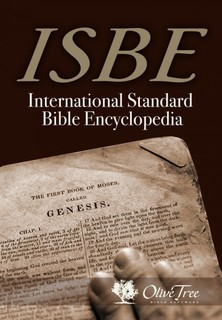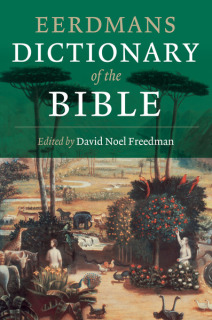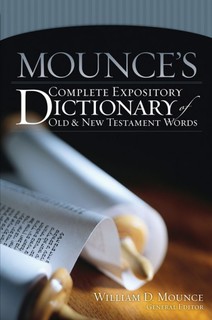Bromileys Theological Dictionary of the New Testament: Abridged in One Volume.
ὕπνος hýpnos [sleep] <G5258>,
ἀφυπνόω aphypnóō [to fall asleep] <G879>,
ἐνύπνιον enýpnion [dream] <G1798>,
ἐνυπνιάζομαι enypniázomai [to dream] <G1797>,
ἔξυπνος éxypnos [awake] <G1853>,
ἔξυπνίζω exypnízō [to wake up] <G1852>
A. The Greeks.
1. Origin, Meaning, and Use of the Stem hypn-. Deriving from a basic supnos, this word means “sleep,” and the phrase en hýpnō (“during sleep”) produces enýpnion as a term for “dream.” agrypnéō means “to sleep in the open,” then “to watch.”2. Sleep as a Natural Process. Natural sleep is described as sweet, kindly, etc. It rules over all, is taken as a gift, overpowers people, especially when fired with wine, and is enjoyed. Phrases are “at the time of the first sleep” and “shortly after going to sleep.” Dreams during sleep are a locus of revelation. A special mixture of wine induces sleep.
3. The Scientific View. At first sleep is explained as a relaxing of energy, as a loss of warmth, or as a withdrawing of blood, and hence as a transitional stage to death. Later observation refutes the last theory. Light or heavy sleep during sickness determines the severity of the sickness. Too much sleep is bad. Aristotle perceives a basic phenomenon of animal life in the alternation of waking and sleep.
4. Disparagement of Sleep. Disparagement of sleep appears early. Sleep is a metaphor for the conduct of fools. In it the noús loses contact with the world and the individual is shut up in the self. Sleep impairs thought and signifies weakness. Sleepers are as good as dead. We should cut down on sleep. It robs us of half of life on the Stoic view, and it belongs to the material world.
5. Sleep and Death. Philosophy stresses the nearness of sleep to death, although only rarely is sleep a euphemism for death prior to the Hellenistic period. Later we often read of the sleep of death. This sleep is sweet. It means end and dissolution, but the belief is also present that it brings redemption from the body, enabling the true self to mount up to heaven.
6. The God Hypnos. There is a god Hypnos as well as a god Thanatos, although often with a link between them, e.g., as twins. This god can put even Zeus to sleep. Sailors invoke him, and he imparts revelations in sleep. He is a rival of Hermes, who brings sleep but is not sleep personified.
B. The LXX and Judaism.
1. The group occurs fairly frequently in the LXX, mainly for the root yšn. The Hebrew differentiates the dream more sharply from sleep than does the Greek. hýpnos is a euphemism for coitus in Wis. 4:6. Revelatory sleep occurs in Gen. 28:10ff.; 1 Kgs. 3:5. Dreams may carry a divine message (Gen. 20:3; 40:9, etc.), but they may also be equated with false prophecy (Jer. 23:25). The stem is linked to sloth in Prov. 6:4 and to sin in Judg. 16:14. It depicts eschatological destruction in Isa. 29:7-8 (and cf. the sleep of death in Jer. 51:39). The fool is in large measure a sleeper (Sirach 22:9).
2. The spirit of sleep in Test. Reub. 3:1, 7 may be the spirit of creation or possibly the spirit of death or error. The idea of the eschatological sleep of death occurs in Eth. En. 49:3. The state between death and the eschaton is sleep, and resurrection is a waking from sleep. Sleep is also a figure for the time of this aeon. Dreams convey revelation during sleep.
3. Philo finds in sleep a natural process, but it also characterizes those who are far from knowledge. One must repel it as an enemy; faith resembles waking out of a deep sleep. Philo never uses sleep for death, but the two are close.
4. Josephus refers to natural sleep. He accepts the dream revelations of the OT. The soul parts from the body in sleep. Sleep is a prototype of death.
C. The NT.
1. The stem hypn- refers to the natural process or state of sleep in Matt. 1:24; Luke 8:23 (Jesus asleep in the boat); Acts 16:27 (the jailor is jolted awake out of sleep).
2. The NT finds no great place for dreams, so that enýpnion and enypniázomai occur only in Acts 2:17 (quoting Joel 2:28) and Jude 8 (which briefly denounces opponents as dreamers, i.e., not as visionaries, but as blind to the truth).
3. In Luke 9:32 the disciples on the Mount of Transfiguration are heavy with sleep. This phrase stresses the contrast between Jesus and the disciples, explains their confusion after the experience, and anticipates what happens in Gethsemane. The sleep motif is prominent in Acts 20:9ff. Rom. 13:11-12 uses awaking from sleep as a metaphor for casting off bondage to the old aeon (cf. the parallels in Judaism and Hellenism). As in 1 Th. 5:4ff., the call is not merely to watch but to renounce attachment to the world. The command to watch (with agrypnéō) occurs in Mark 13:33; Luke 21:36; Eph. 6:18. In 2 Cor. 6:5; 11:27 Paul’s watchings are his unremitting labors.
4. The sleep of death figures in Jn. 11:11ff. The illness of Lazarus will not lead to death (v. 4). Implied in v. 11 is the deeper background of actual death which is only an apparent reality face to face with Jesus. When the disciples fail to understand (v. 12), distinction is made between the sleep of death and “the rest which is sleep” (v. 13). The verses proclaim the basic impotence of death in the light of the resurrection.
D. The Early Church and Gnosticism.
The noun does not occur in the apostolic fathers, and the verb only in 1 Clem. 26:2 (quoting Ps. 3:3: the sleep of death). The images of sleep and awaking occur relative to the resurrection. Among compounds we find agrypnía (watchful care) in Barn. 21.7. Apocryphal works refer to Jesus’ steering of the boat during sleep, to drunkenness with sleep, and to the sleep of death. In Gnosticism sleep is ignorance and oblivion. It symbolizes bondage to the world. To sleep is to be in the sphere of death. More generally we also find the idea that in view of the resurrection death is merely sleep during the time up to the resurrection.
→ egeírō, katheúdō, ónar, hórama
[H. BALZ, VIII, 545–56]-[1]
Fall Asleep
Appendix / Bibliography
[1] Bromiley, Geoffrey W., trans., Gerhard Kittel, Gerhard Friedrich, ed. Theological Dictionary of the New Testament: Abridged in One Volume Grand Rapids, MI: William B. Eerdmans, 2003. WORDsearch CROSS e-book
[2] Spiros Zodhiates, New Testament, (Chattanooga, TN: AMG Publishers, 1993), WORDsearch CROSS e-book
 Affiliate marketer links: Go here to see what William Mounce has written and published, and if you wind up buying anything he has written and published, Affiliate marketer Rick Livermore will earn a commission on the item you bought. If you would like to offset my expenses of producing all this free content, but you want to pass on buying William Mounces reading materials from Faith Gateway store,feel free to give a little something------- Give through PayPal-----Rick Livermore-Webmaster220
Brought to you by Rick Livermore
 
I live in Laguna Niguel California now
a fan of
tubitv.com/category/faith_and_spirituality also a fan of tubitv.com/channels/dovechannel
Thank you for your support for the work I did while I lived in Arizona.
I am currently selling my Arizona home;if you are interested in it. My realtor is:
https://www.realtor.com/realestateandhomes-detail/3684-S-Moccasin-Trl_Gilbert_AZ_85297_M29833-19176 |




























































